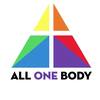Classis Zeeland sent an overture to the 2013 Synod of the Christian Reformed Church asking that it
appoint a study committee expand on Report 42 on homosexuality and its conclusions, adopted by
the 1973 Synod, “in order to give guidance and clarification on how members, clergy, and churches
can apply this biblical standpoint in light of the legality of same-sex marriage in certain jurisdictions, as
well as how to communicate this biblical position in a loving way within a North American culture
where the biblical view is increasingly in the minority”. Among the questions Classis Zeeland wanted
guidance on were how should ministers and churches respond to requests for same-sex marriage
ceremonies, should Christians attend such ceremonies for family members or friends, and must
Christians oppose the legality of same-sex marriages or civil unions? And Classis Pacific Northwest
overtured Synod to “provide pastoral advice on the issue of gay marriage”. (Overtures 12 and 13,
available in the Agenda for Synod 2013 at www.crcna.org.)
Eastern Ave. CRC saw this when the Agenda became available, and it asked Classis Grand Rapids
East to overture Synod to address this question in a different way: “to appoint a study committee to
give guidance and clarification to the churches as to a Christ-like and scripturally sound pastoral
approach to the practice of life-long same-sex unions. This study shall be based upon careful
examination of scripture as well as current psychological and sociological scholarship. . .” This
overture was sent by Classis Grand Rapids after the official deadline for overtures of this sort,
because the Classis Zeeland overture was not known in time to meet the deadline, but Classis Grand
Rapids East also included “weighty grounds” for allowing its consideration even though it was past the
deadline, in line with synodical rules. Unfortunately the officers of Synod did not allow it to be
considered.
The advisory committee of Synod dealing with these overtures proposed a study committee to report
to Synod 2016 with a mandate very similar to that requested in the overture from Classis Zeeland: to
“give guidance and clarification on how members, clergy, and churches can apply the biblical
teachings reflected in the Acts of Synod 1973 Report 42 . . . in light of the legality of same-sex
marriage in certain jurisdictions, as well as how to communicate these teachings in a truthful and
gracious way within North America.” The committee was also instructed to address the questions in
the above overtures.
When this came to the floor of Synod, I and others argued that the mandate of the committee should
be changed to include examination of exegetical and biological and psychological research since
1973. Arguments were made that relying on a 40-year old report creates difficulty for churches
dealing pastorally with this issue, that our witness can be better if based on current scholarship, and
that this is a particularly important issue for many of our younger members, some of whom are leaving
our church which has refused to re-examine this issue. On the other side were those arguing that the
conclusions of 1973 were fine, and that they might have to leave the church if they were changed. An
amendment to change the mandate to include a re-examination of biblical teaching in this area was
defeated by a large margin, and the proposal of the advisory committee was adopted by a large
margin with only one change: to instruct the study committee to follow the shepherding model used
by the synodical Faith Formation Committee; this means that the committee is to engage churches
and classes as it does its work and report annually to synod. (The full mandate is available in the
Acts of Synod 2013 at www.crcna.org.)
The fact that the committee is to use the shepherding model gives an opening for churches and
classes to share with the committee the difficulties they have in ministering in this area without a
current study of biblical, biological, and psychological research by the CRC as a whole. And it gives
them an opportunity to inform the committee of what they have learned from their own study and
ministry in these areas. In fact, it might be good for churches and classes to do their own formal
studies of current biblical exegesis and biological and psychological research which could be shared
with the committee and the church at large, as well as inform their own ministries.
